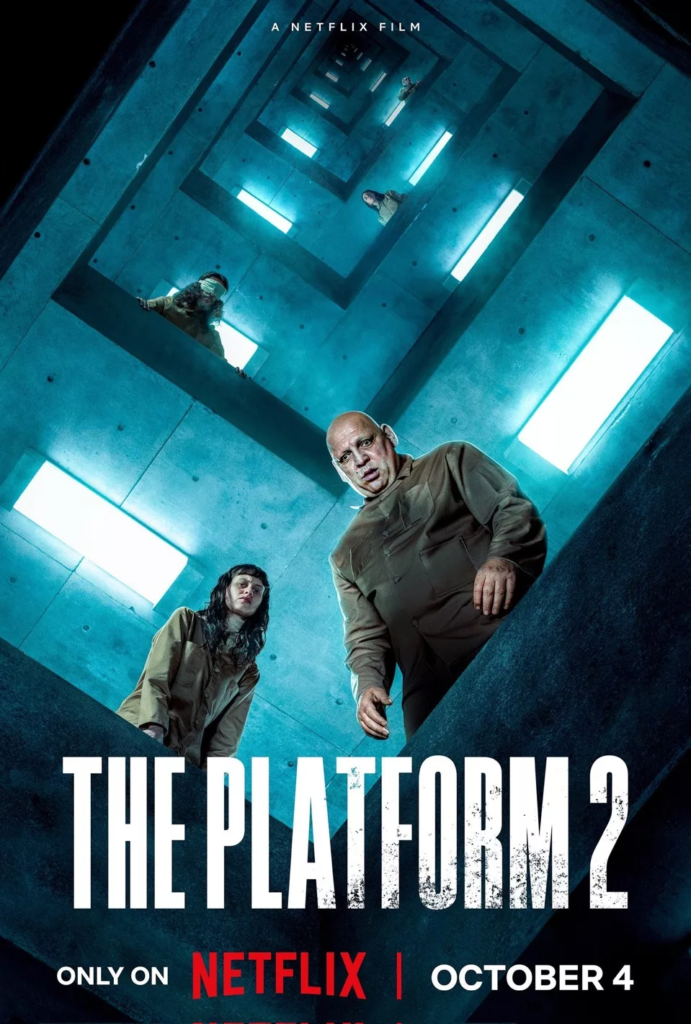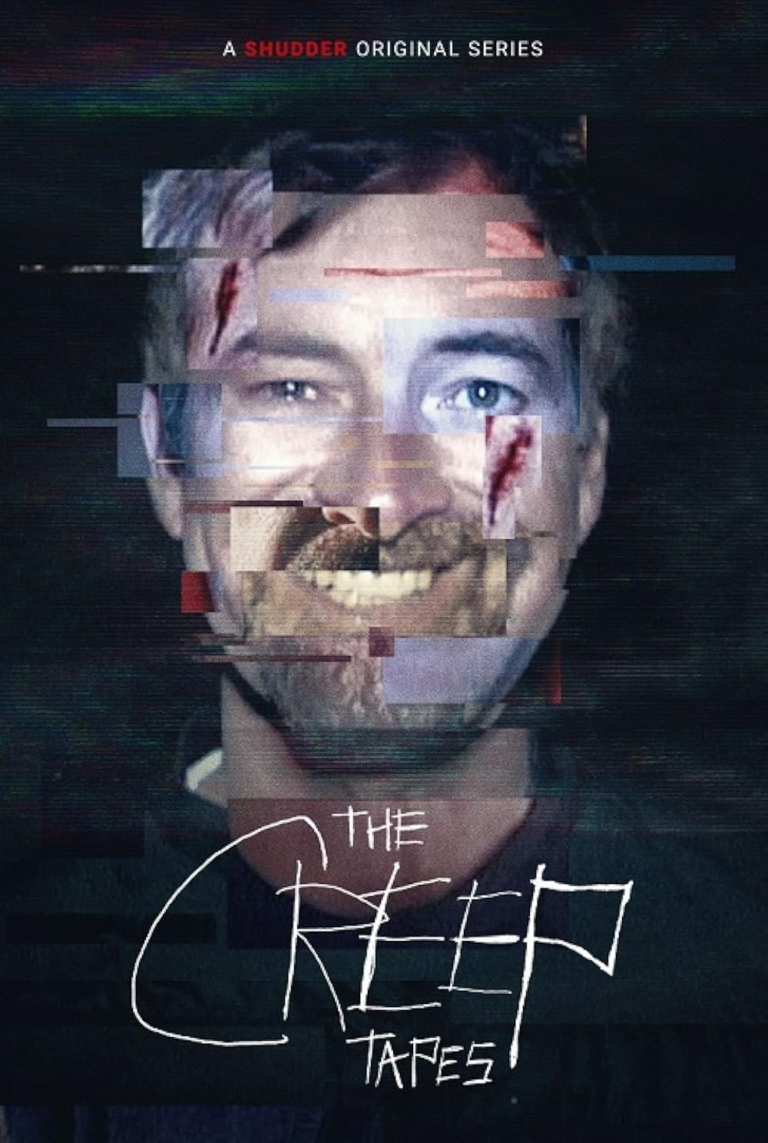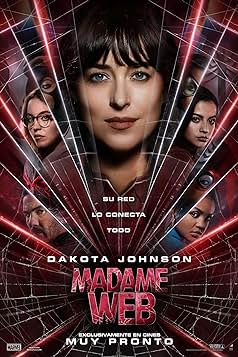The Platform 2 Christian Review

So, here we go again—back down that harrowing, nightmarish descent into the heart of The Platform‘s prison, where floors stack upon floors in a vertical abyss, and the morality of man is put to the ultimate test. I’ll be honest: I had high hopes for The Platform 2. The first movie, with all its gut-wrenching tension and brutal honesty, had something potent in its DNA. It wasn’t an easy watch, but it made you think, made you squirm, made you confront the ugly, primal corners of the human condition. That’s a rare feat for any film, let alone a grim horror-thriller. But this sequel? It’s a muddied mirror of the original, reflecting the same horrors without adding any new layers of meaning. It’s like being served leftovers on a silver platter. The ingredients are all there, but they’ve lost their punch. So, let’s break it down, piece by piece.
A Dark Recipe Repeated: What’s New in The Platform 2?
The setup is the same: a massive, towering prison, where food is delivered from the top floor down, and those below are left to fight over the scraps. It’s a grotesque allegory of social hierarchy and greed, one that still manages to unsettle with its brutal simplicity. Yet, The Platform 2 takes this grim concept and stretches it into something far more convoluted. The prison is bigger, the stakes are higher, and the rules are more complex—but is it better?
For starters, the production value has been kicked up a notch. The lighting is sharper, the pacing is tighter, and the camera work, though still claustrophobic, captures the twisted beauty of this hellish labyrinth in vivid detail. The performances are solid too, especially from our lead, who carries the weight of the film’s moral quandaries with a kind of resigned intensity. But polish doesn’t make a good movie. A shiny wrapper doesn’t change the taste of the candy inside.
Serving More of the Same Dish: A Sequel Stuck in Repeat
If The Platform was a cautionary tale about the dark extremes of scarcity and desperation, The Platform 2 is a cautionary tale about making sequels for the sake of sequels. It’s almost as if the filmmakers knew they had lightning in a bottle the first time around and thought, “Let’s just catch that same bolt again.” But instead of capturing something new, they’re just rehashing the same old shocks and horrors, amping up the gore, and throwing in a few new faces to chew through the carnage.
Sure, they tried to expand the world, adding new levels, new rules, and even a new mythology to explain why things work the way they do. But instead of deepening the story, it just clutters it. The first film’s strength lay in its stark, almost parabolic simplicity: those at the top feast, those at the bottom starve, and human nature plays out in all its vicious, selfish, heartbreaking reality. Now, with all the added lore and convoluted backstories, it’s like watching a chef keep tossing spices into a pot until the flavors are just a confusing mess. Sometimes less really is more.
A Nihilistic Labyrinth: Where Is the Hope?
As Christians, we know that stories, even the darkest ones, can have meaning beyond what’s on the surface. The Bible is full of narratives that don’t shy away from depicting human evil in its rawest forms—Cain and Abel, David and Bathsheba, the Crucifixion itself. But these stories have a purpose; they point to something higher, something true. They show us our brokenness, but they also show us the possibility of redemption.
Not so in The Platform 2. Here, the violence and despair seem almost gleeful, like the filmmakers are daring us to keep watching just to see how far they can push us. It’s horror for horror’s sake, pain for pain’s sake. There’s no glimmer of light, no sense that anyone might choose the hard, sacrificial path of love or grace. Even the brief moments of camaraderie or solidarity are undercut by betrayal or cruelty. You’re left feeling hollow, as if the movie’s main message is that we’re all doomed to tear each other apart in the end.
An Empty Meal: Characters as Moral Pawns
One of the biggest weaknesses of The Platform 2 is its characters—or rather, its lack of characters. Instead of real, flesh-and-blood people with hopes, fears, and flaws, we get hollow stand-ins for ideas. They’re pawns in a twisted chess game, moved around to serve the film’s philosophical musings on power, greed, and survival. The first movie had its share of archetypes, sure, but there was still something painfully human about its inhabitants. You could see yourself in them, if only for a moment, and that’s what made the horror hit home.
But here? They’re too abstract, too distant. We’re not watching people—we’re watching cogs in a brutal machine, and once they’re broken, they’re tossed aside without a second thought. That makes it hard to care, hard to invest, and ultimately, hard to stay engaged. When a character dies, it doesn’t feel like a tragedy. It feels like the movie ticking off another box on its shock-value checklist.
Darkness Without Redemption: A Christian’s Perspective
So, where does that leave us? What’s a Christian viewer supposed to take away from a movie like this? It’s not that Christians can’t appreciate horror or dark films—there’s value in stories that confront the reality of evil and challenge us to reckon with our own moral shortcomings. But The Platform 2 isn’t interested in challenging us. It’s more like a descent into a moral abyss, one that has no bottom, no way out, no hope of salvation.
If the first film was a bleak parable about the dangers of unchecked greed and the corrupting power of scarcity, this sequel is just… bleak. There’s no lesson here, no catharsis, no sense that the suffering and violence are leading anywhere. It’s just a cycle of pain and depravity, repeated ad nauseam until you’re numb to it. That’s not a story worth telling. That’s not a story worth watching.
Final Verdict: A Dish Best Left Untouched
In the end, The Platform 2 is a frustrating experience, not just because it’s repetitive or overly gruesome, but because it had so much potential to be more. It could have expanded the themes of the original, delved deeper into the human condition, or even offered a faint glimmer of hope amidst the darkness. Instead, it settles for being a grotesque echo, a shadow of its predecessor without any of the depth or resonance.
From a technical standpoint, it’s a solid piece of filmmaking. The visuals are striking, the atmosphere oppressive, and the performances serviceable. But as a story? As a reflection on human nature, on sin, on the possibility of redemption? It’s as empty as the plates that descend through its endless levels.
Rating: 4/10. If you’re looking for a thoughtful exploration of moral dilemmas, you’d be better off rewatching the original. This is one dish that’s best left on the table.






